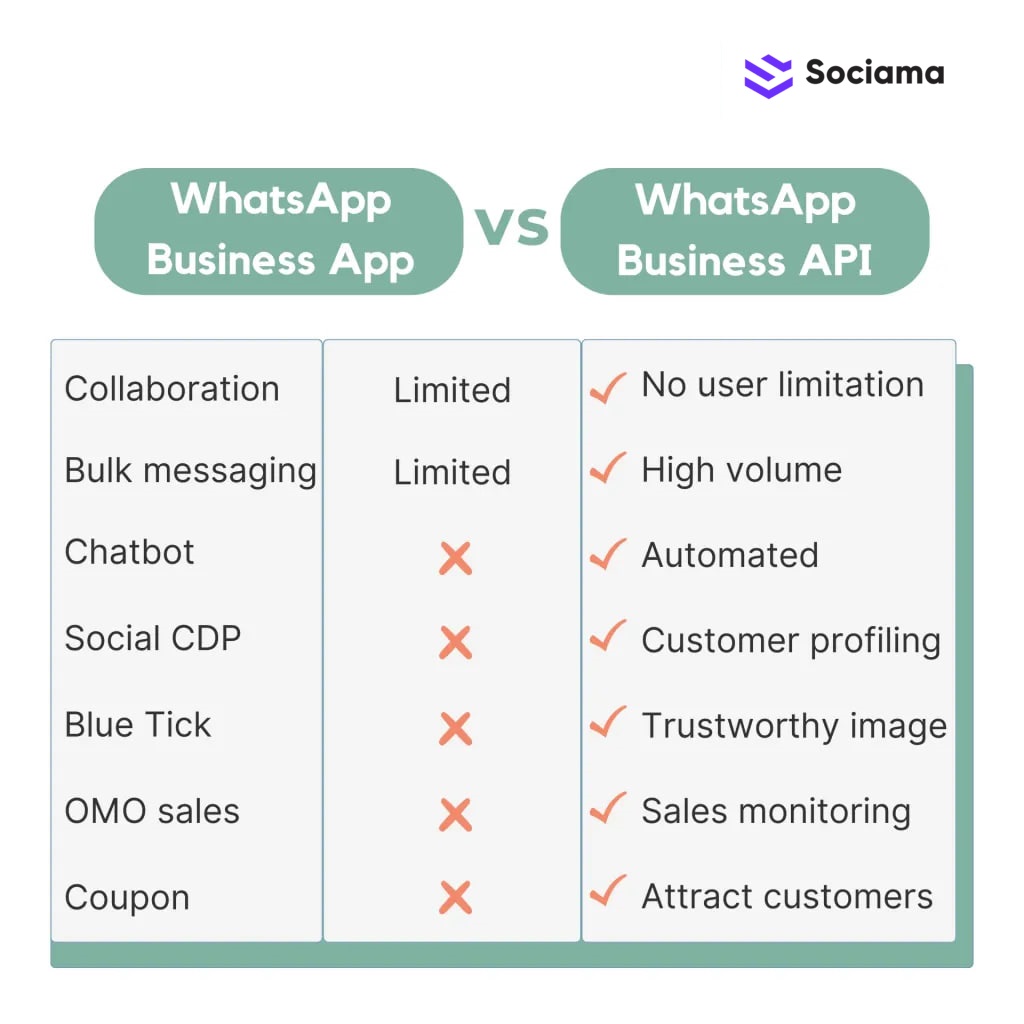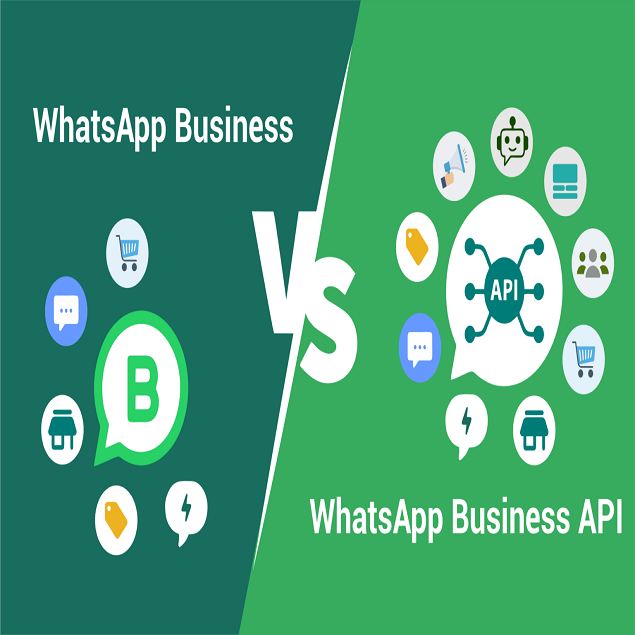WhatsApp Business API is an advanced service launched by WhatsApp for medium and large enterprises, providing a secure and scalable way to communicate with customers. Unlike the regular WhatsApp Business App, the API enables automation, CRM integration, multi-agent collaboration, and high-volume messaging. Businesses must access it via certified WhatsApp Business Solution Providers like Sociama.
Below is a comparison between the WhatsApp Business App and the WhatsApp Business API to help you decide which one is more suitable for your business needs.
WhatsApp Business App vs WhatsApp Business API

- Target Users / Business Size: WhatsApp Business App is built for small businesses, often solo owners or businesses with few customers and low message volumes. The API is intended for medium-to-large businesses, enterprises, or those expecting high volume, multi-agent customer interactions. :contentReference[oaicite:0]{index=0}
- Access & Interface: - Business App is a mobile application (iOS & Android) and works like a standalone app. - API does *not* have a native mobile app interface. It must be accessed via dashboards/tools provided by BSPs (Business Solution Providers) or integrated into CRMs etc. :contentReference[oaicite:1]{index=1}
- Number of Users / Team Collaboration: - Business App supports limited devices/users (few devices, limited sharing). - API supports multiple agents, shared inboxes, capacity for teams to work simultaneously. :contentReference[oaicite:2]{index=2}
- Automation & Integrations: - Business App offers simple automation: greeting messages, away messages, quick replies. - API offers advanced automation: chatbots, customised workflows, integration with CRM / e-commerce / ERP, template messaging etc. :contentReference[oaicite:3]{index=3}
- Scalability & Message Volume: - Business App has limits (e.g. broadcast list size, device limits) and less suitable for very large scale messaging. - API can handle large volumes, support template messages, send bulk messages, work across many customers, often even if they haven’t saved the number. :contentReference[oaicite:4]{index=4}
- Features & Rich Messages: - Business App supports basic business profile, catalogs, quick replies, labels. - API supports richer message types: templated notifications (utility, marketing, authentication), buttons, interactive messages, greater analytical/reporting abilities. :contentReference[oaicite:5]{index=5}
- Verification & Trust Signals: - With Business App, you can have a verified business profile (to some extent). - API users have access to additional verification (like green tick / official business account in many cases), which helps with trust. :contentReference[oaicite:6]{index=6}
- Cost: - Business App is free. - API has cost: conversation/message-based pricing, charges vary depending on message type, region, volume. Requires setup costs/BSP fees etc. :contentReference[oaicite:7]{index=7}
- Use Cases / Best Fit:
- Business App is great for shops, local businesses, solo entrepreneurs, or when message volume and team size are small.
- API is better when you need advanced workflows, 24/7 customer support, chatbots, mass/templated messaging, integration with other systems, and high-volume messaging.
- Limitations of Each:
- Business App: device limitation, limited automation, less control over message types, manual handling required for many tasks.
- API: more complex to set up (technical / BSP involvement), cost overhead, compliance/approval of templates, infrastructure or third-party tool dependency.


 September 13, 2025 - BY Admin
September 13, 2025 - BY Admin